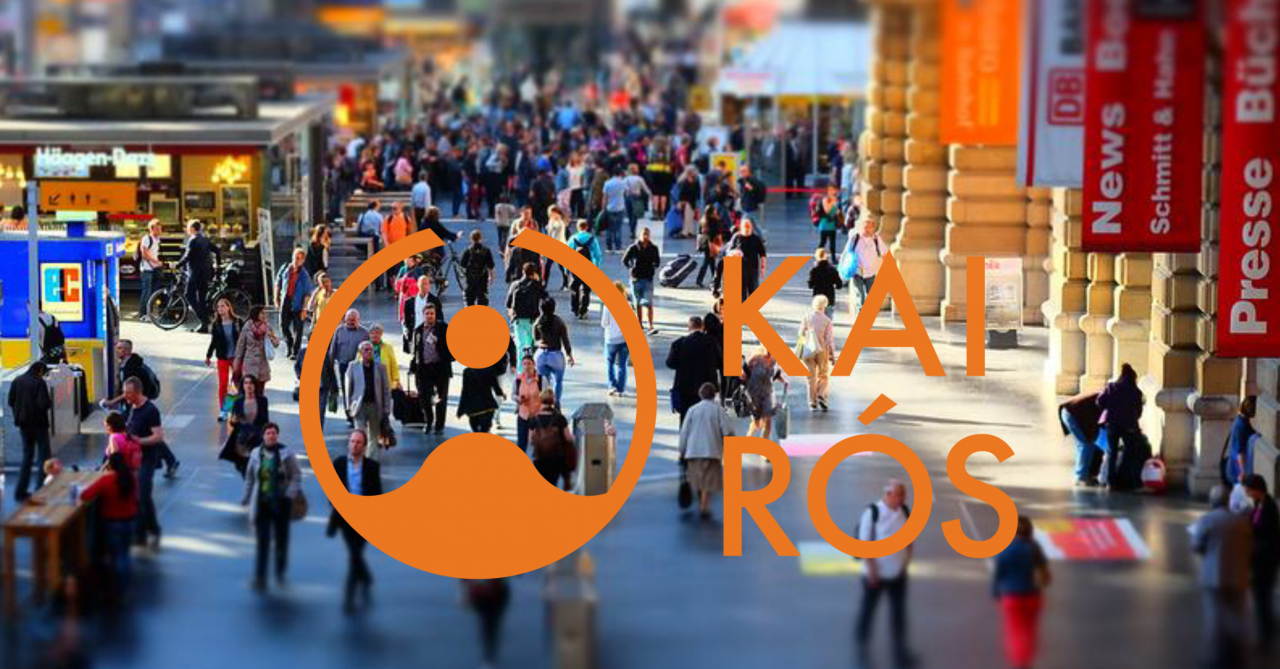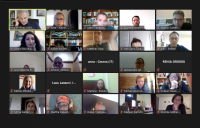
The online meeting showed common challenges and potential of cultural heritage for urban development and regeneration.
The first of two warm-up webinars of the URBACT network KAIROS was held on 16th of December 2020 with a wide range of participants from across Europe and beyond. The objective was to stress key topics useful to realise the potential of cultural heritage as a driver for sustainable urban development. The focus of the first event was on lessons learnt from already successfully implemented projects. After a keynote presentation by Matthias Ripp showcasing common elements and successful practices drawn from three large-scale European Projects where heritage was at the center of urban development (Halland-Project, HerO-Project and COMUS Project), specific examples were presented. Chiara Bocchio showed how the (world) heritage city of Florence has used heritage assets like historic buildings or ensembles to introduce new and innovative uses to benefit the local community. Dr. Zachary Jones reported on the impact of heritage-related events like the Capital of Culture Program from the European Commission on the economic, cultural and social development through tourism. Markus Sch fer elaborated how in the city of Bamberg, in Bavaria, a joint venture housing project was developed in a bottom-up approach right in the center of the historic city.
The presented cases and the keynote showed a range of common factors and strategies that have the potential to be transferred to other cities. A lively discussion among the participants focused for example on the questions, how the objectives of the heritage sector and the general city visions could be harmonised, or how the right balance between a long-term vision and flexibility to address more “sudden“ challenges like a pandemic can be achieved. Special attention has been given to the preparation (scoping) of heritage-based urban development processes, how this could be done and what skills are needed. Participants emphasised the importance to develop an overall vision for the cities and integrate the objectives of the heritage sector within this vision. Another point that was raised was the importance on community participation in the process of heritage-based urban development and regeneration. It was underlined that the ultimate objective of any heritage-based urban development or regeneration action is the enhancement of the quality of life for local communities.

The general findings of the webinar were the following:
1. To be successful, heritage-based urban development and regeneration processes need to be well-prepared and scoped.
2. Cities need a vision (medium and long-term) and flexibility to react to “sudden“ challenges at the same time to be successful.
3. For successful heritage-based urban development not only plans (like management plans) are necessary but also the local community needs to play a strong role and the responsible urban officers need to be enabled with the necessary set of skills.
4. Heritage-related events can be used for visitor management and to enhance the image of specific Heritage Places.
5. The strength and energy of local communities is a strong resource and can be activated to address urban challengers and for heritage-based urban development.
Note by Matthias Ripp, Ad-hoc Expert KAIRÓS

